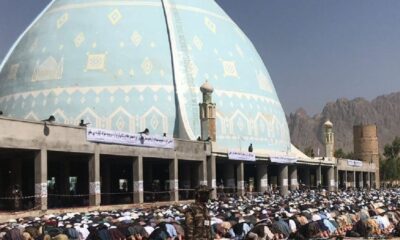Regional
Fire at entertainment venue kills at least 24 people in western India
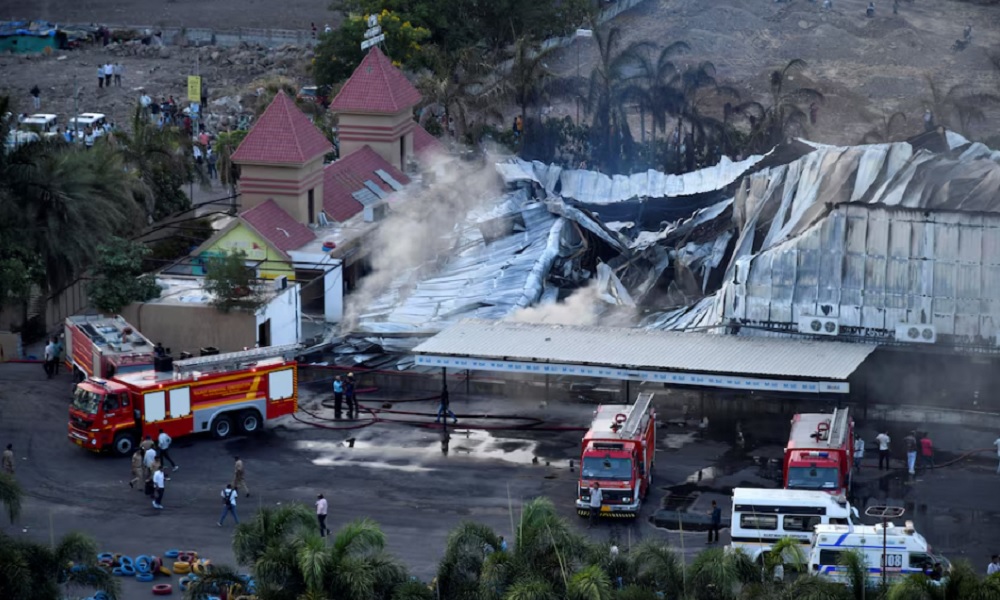
At least 24 people, including many children, died in a fire that broke out on Saturday evening in a family entertainment venue in the western Indian state of Gujarat, a government official said.
With rescue efforts continuing at the scene in the Rajkot district, the local mayor told Reuters the death toll was expected to rise, Reuters reported.
“Our focus is on rescue operations and saving lives. We will ensure strict action is taken against the people who are responsible for this incident,” Mayor Nayana Pedhadiya said.
Television images showed a massive fire engulfing the TRP game zone and thick clouds of smoke emanating from the site. The entire structure was gutted in the blaze.
A police official at the local civil hospital said some of the bodies were charred beyond recognition.
Prime Minister Narendra Modi posted on social media platform X that the local administration was working to provide assistance to those affected.
“Extremely distressed by the fire mishap in Rajkot. My thoughts are with all those who have lost their loved ones,” Modi said in the post.
The district’s chief fire officer, IV Kher, said firefighters had almost brought the fire under control.
“The cause of the fire is yet to be ascertained,” he told Reuters.
Gujarat Chief Minster Bhupendra Patel said an investigation into the incident had been handed to a Special Investigation Team (SIT), and television reports said two people had been detained by Rajkot police in connection with the incident.
Regional
Fire in Kuwait building kills 49 foreign workers
Three of 11 Filipino workers in the building were brought to hospitals, while the status of five remained unclear and three were safe, the Philippine migrant workers ministry said in a statement on Thursday.
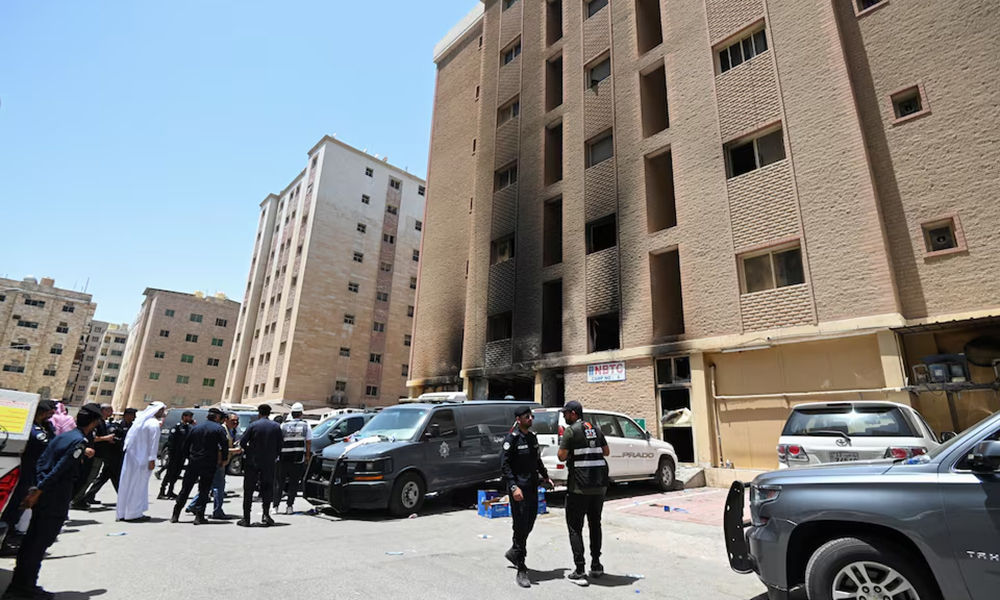
At least 49 people were killed in Kuwait on Wednesday after a fire broke out in a building housing foreign workers, with Kuwait’s deputy prime minister accusing property owners of committing violations that contribute towards such incidents.
The nationalities of those who died were not immediately disclosed by authorities. India’s ambassador visited hospitals where workers were being treated for injuries sustained in the fire, Reuters reported.
At one hospital, more than 30 Indian citizens were admitted, the embassy wrote on social media, adding that at least 47 workers had received treatment in hospitals.
Several Indians, including from the southern state of Kerala, were reported to have died in the fire, according to a letter written by Kerala chief minister Pinarayi Vijayan to India’s foreign minister that was shared with the press.
A government agency for Keralites living outside the state said it had been told by the Indian community in Kuwait that 41 Indians, including 11 from Kerala, had died in the fire.
Reuters could not independently verify the figures.
Visiting the site, Deputy Prime Minister Sheikh Fahad Yusuf Saud Al-Sabah said “the greed of real estate owners is what leads to these matters”. It was not immediately clear if any violations had taken place at the building or what they were.
Low paid, blue collar workers in the Gulf often live in overcrowded accommodation. Local authorities did not disclose what kind of employment the workers were engaged in, though like in other Gulf states, Kuwait relies heavily upon foreign labour in industries like construction, including from South and Southeast Asia.
An Egyptian who survived the fire and worked as a driver in Kuwait, told local media the fire had started on a lower floor and that those on higher levels were unable to escape. He said the building had filled with thick smoke.
Three of 11 Filipino workers in the building were brought to hospitals, while the status of five remained unclear and three were safe, the Philippine migrant workers ministry said in a statement on Thursday.
Emir Sheikh Meshal al-Ahmad al-Sabah ordered an immediate investigation into the cause of the fire and said that any officials found responsible would be held accountable, read the report.
The interior ministry, which said the death toll had risen to 49, was investigating, searching the site for victims and working to identify those who had died, state media reported.
The fire in Mangaf, a city along the coast south of the capital Kuwait City, was reported to local authorities at 6 a.m. (0300 GMT), Major General Eid Rashed Hamad told state television. It was later contained.
Another senior police commander told state television that many people had died from smoke inhalation, and dozens were rescued. He said the building housed a large number of workers.
The senior police commander said authorities had warned against housing too many workers in a single accommodation, but didn’t say if regulations had been flouted.
Indian Prime Minister Narendra Modi described news of the fire as saddening in a post on social media platform X.
“My thoughts are with all those who have lost their near and dear ones. I pray that the injured recover at the earliest,” he said.
Related Stories:
New York City apartment building fire kills 19, including 9 children
Regional
Nine Hindu pilgrims dead in India’s Jammu after militant attack, police say
At least nine people were killed and 33 injured when a bus carrying Hindu pilgrims plunged into a deep gorge after a suspected militant attack in the Indian federal territory of Jammu and Kashmir on Sunday, police said.
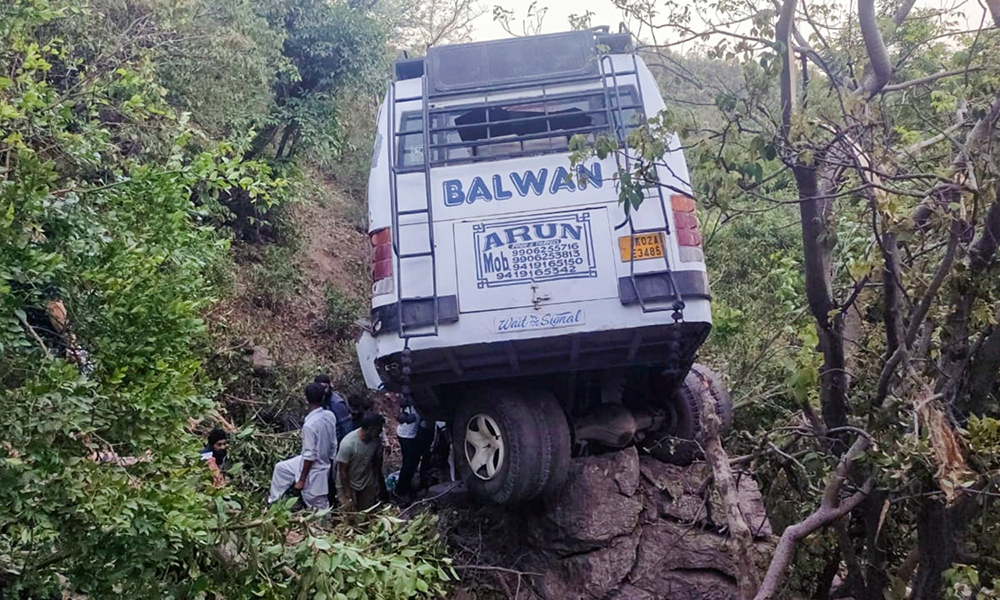
At least nine people were killed and 33 injured when a bus carrying Hindu pilgrims plunged into a deep gorge after a suspected militant attack in the Indian federal territory of Jammu and Kashmir on Sunday, police said.
News of the attack came as Narendra Modi took oath as prime minister for a record-equalling third term and drew criticism from the main opposition Congress party, Reuters reported.
“This shameful incident is the true picture of the worrying security situation in Jammu and Kashmir,” opposition leader Rahul Gandhi said on X.
“Militants ambushed the bus” – opposition leader
The Himalayan region, which is also claimed by Pakistan, has been roiled by militant violence since the start of an anti-Indian insurgency in 1989. Tens of thousands of people have been killed, although violence has tapered off in recent years.
“Militants ambushed the bus and fired at it indiscriminately. The bus fell into a gorge, leading to the death of 9 pilgrims, and 33 are injured,” said Mohita Sharma, district police chief of Reasi.
The last major attack on Hindu pilgrims in the region happened in 2017 when a bus was targeted, killing eight people, read the report.
Sunday’s attack comes a day after police chief RR Swain said the number of local militants in the territory was dropping but 70-80 foreign militants remained active.
The injured have been moved to nearby hospitals and a search for the attackers has been launched, police said in a statement.
A state official earlier said at least 10 pilgrims were feared dead.
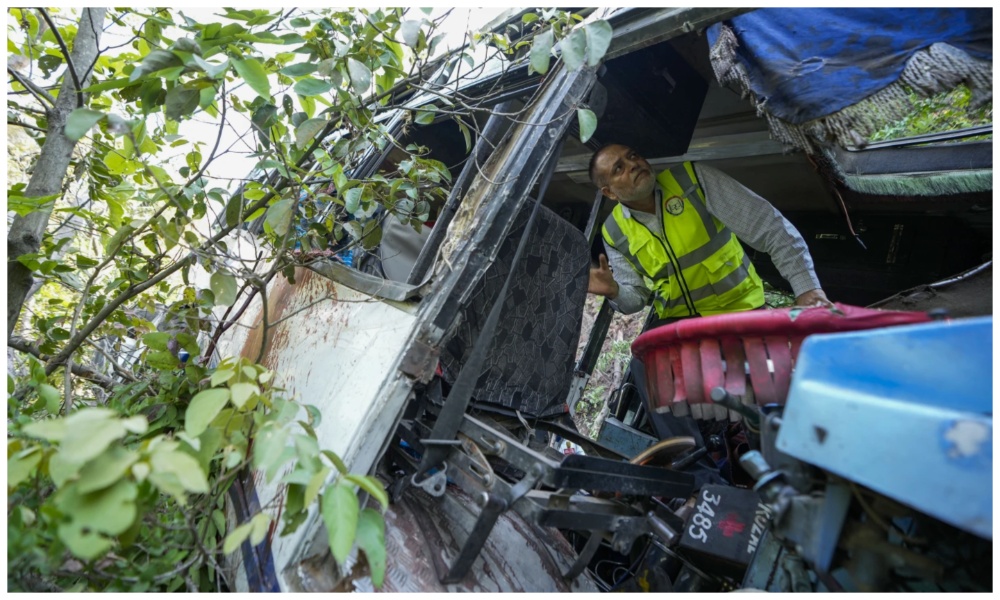
A forensic official inspects the bus that plunged into a gorge after being shot at by suspected militants. Photo AP
RELATED STORIES
Regional
Pakistan’s army says bomb blast kills seven soldiers
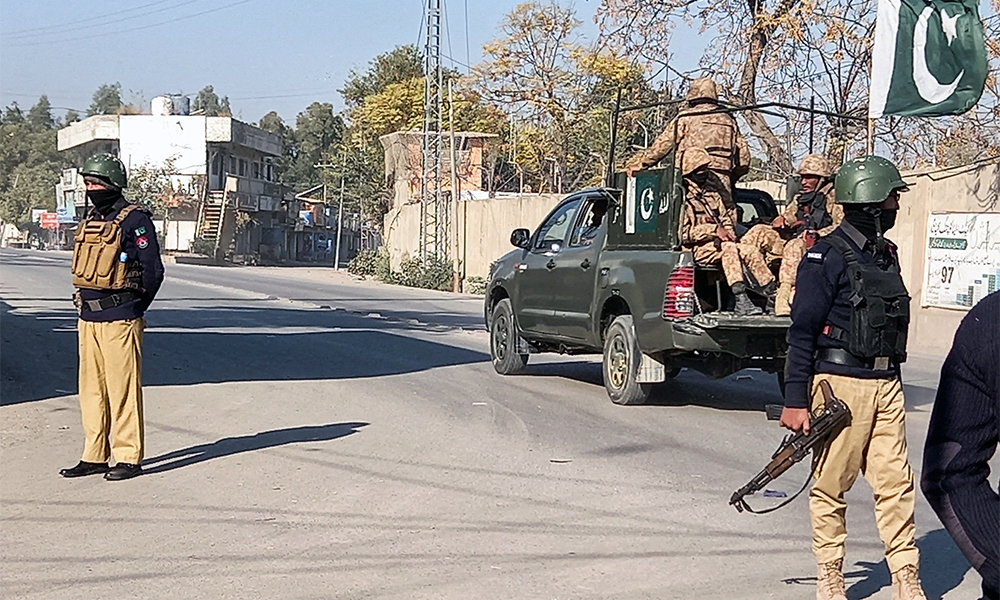
A bomb blast targeting a military truck killed seven soldiers on Sunday in northwestern Pakistan along the border with Afghanistan, the army said.
The incident took place in the Lakki Marwat district which is on the edge of a lawless tribal region divided on both sides of the border, Reuters reported.
The improvised explosive device exploded near the military vehicle, killing seven soldiers including an officer, the army said in a statement.
“The perpetrators of this heinous act will be brought to justice,” it said.
There was no immediate claim of responsibility, read the report.
The tribal region has long been a safe haven for Islamist militants who operate on both sides of the border.
An umbrella group of Islamist and sectarian militant groups called Tehreek-e-Taliban Pakistan (TTP) has been waging a war against the state to try to overthrow the government. It wants to run Pakistan as an Islamic state governed by its own harsh interpretation of Islam, read the report.
Islamabad says the TTP leaders have taken refuge in neighbouring Afghanistan, where they run camps to train Islamist militants to launch attacks inside Pakistan.
Kabul has previously said rising violence in Pakistan is a domestic issue for Islamabad.
Relations between Pakistan and Afghanistan have soured in recent months. Islamabad says Kabul is not doing enough to tackle militant groups targeting Pakistan.
-

 Latest News5 days ago
Latest News5 days agoIran Air starts flights to Kabul
-
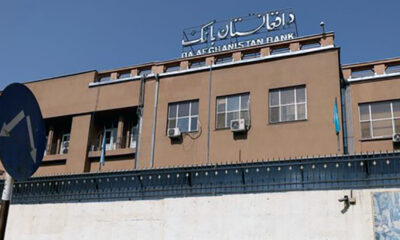
 Latest News4 days ago
Latest News4 days agoAfghanistan’s central bank chief upbeat over stable AFN
-

 Latest News4 days ago
Latest News4 days agoUNICEF marks ‘sad’ 1,000-day milestone of ban on Afghan girls’ education
-
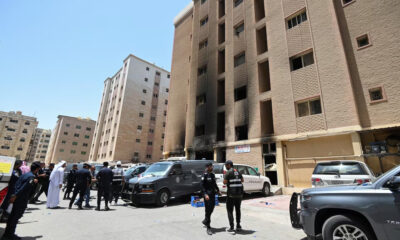
 Regional4 days ago
Regional4 days agoFire in Kuwait building kills 49 foreign workers
-

 Sport5 days ago
Sport5 days agoRankings joy for Afghanistan as Nabi crowned new No.1 all-rounder
-

 Sport3 days ago
Sport3 days agoAfghanistan down PNG to reach Super Eight, end NZ hopes
-
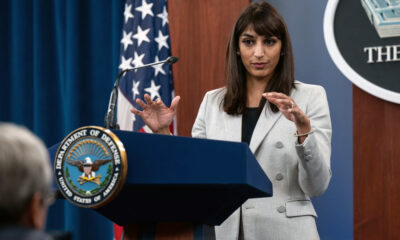
 Latest News4 days ago
Latest News4 days agoDoD says it continues to ‘go after’ Daesh in the region
-
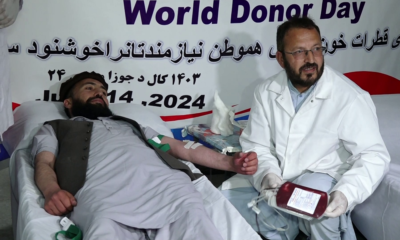
 Health4 days ago
Health4 days agoWorld Blood Donor Day: Over 670,000 units of blood donated in past year


